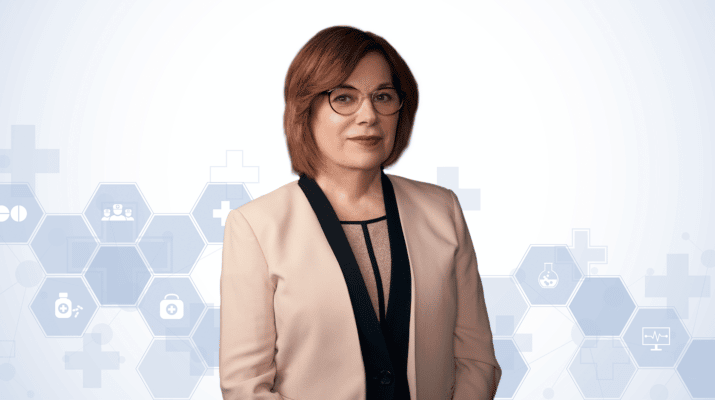By Brenda Alesii
President of Health Foundation thrilled with an unsolicited donation of $9 million from philanthropist MacKenzie Scott. She discusses what the nonprofit plans to do with it
For the board, trustees and staff of the independent private Health Foundation for Western & Central New York, Oct. 28 will always be a red-letter day.
On that date, Health Foundation president Nora OBrien-Suric announced that the organization, covering eight counties in Central New York and eight counties in Western New York, had received $9 million from novelist and philanthropist MacKenzie Scott.
That massive windfall will be used to support efforts to pursue racial, geographic and socioeconomic health equity in the foundation’s territory. Further, the monies will be used to work with agencies and partners that address systemic causes of health disparities and improve the health of residents.
In Good Health recently spoke with OBrien-Suric, a New Jersey native who now lives in Amherst, about this unsolicited gift.
Q: What was your reaction when you learned about the $9 million gift to the foundation?
A: I almost fell out of my chair! When I received the call in September with the news, I was asked if I know who MacKenzie Scott is. I started stuttering and acknowledged that I knew of her philanthropy. I was told that the foundation would receive stocks and that the donation was completely unrestricted. After speaking with our financial adviser and attorney, we were told the funds would arrive in early November and that this information had to be kept confidential.
Q: Out of the countless charities and foundations around the world, how was your organization selected by Scott?
A: In the spring we were approached by an anonymous person asking if we accept donations. We answered many questions concerning our financials, provided annual reports and program information. MacKenzie Scott wants no thanks or acknowledgement, but due to this incredible donation, we can call out socioeconomic and racial disparities. Every person deserves to live in healthy, thriving communities and have the same opportunities for good health. Tackling the system-level causes of unequal health outcomes is important and urgent work that warrants significant investment. These funds will bolster our ability to partner with the community in developing and advocating for long-term solutions to the many inequities that drive health disparities. We are so appreciative of this donation, a landmark moment in our 20 years of service to the community.
Q: Who is your main client base?
A: Our board decided 20 years ago that our focus areas should be children ages birth to 5 who are impacted by poverty, and older adults. Over time, we recognized that the capacity of our network of nonprofit agencies also required our support. Those are our three focus areas. Additionally, we assist with maternal health and caregivers.
Q: What sort of inequities do you see affecting area people?
A: Three out of five Black people in Buffalo die prematurely, twice the rate of whites. Similar rates occur in Onondaga County and Black people were hospitalized for COVID-19 at almost three times the rate of whites at the height of the pandemic.
Q: Can you share an example or two on programs for children?
A: “Help Me Grow,” is particularly important for families because the early years of a child’s life present a chance to build a strong foundation for development. The brain develops rapidly during the first five years, laying the foundation for lifelong health, well-being and achievement. This program assesses children during the milestone stages of their lives. The program offers families information on child development and parenting as well as referrals to community resources through the Western New York 2-1-1 line.
Our foundation first launched Help Me Grow in Western New York as a pilot project in 2008 with six pediatric primary care practices conducting developmental screenings of children from birth through age 5.
Our “PEDALS” program focuses on training teachers and volunteers in child care to help children build social emotional skills. Every family has strengths and assets. We want to know how to help people get tools and identify where they need support.
Q: What about help for older adults?
A: We support age-friendly communities and health systems, work with consortiums, and identify symptoms for elder mistreatment. And we are thrilled beyond belief that Gov. Kathy Hochul on Nov. 4 signed a Master Plan for Aging, ensuring that the needs of older people and their caregivers are the top priority, and that this plan is a transparent process driven by health equity and healthy aging.

